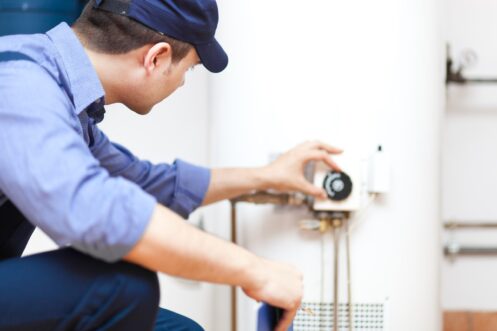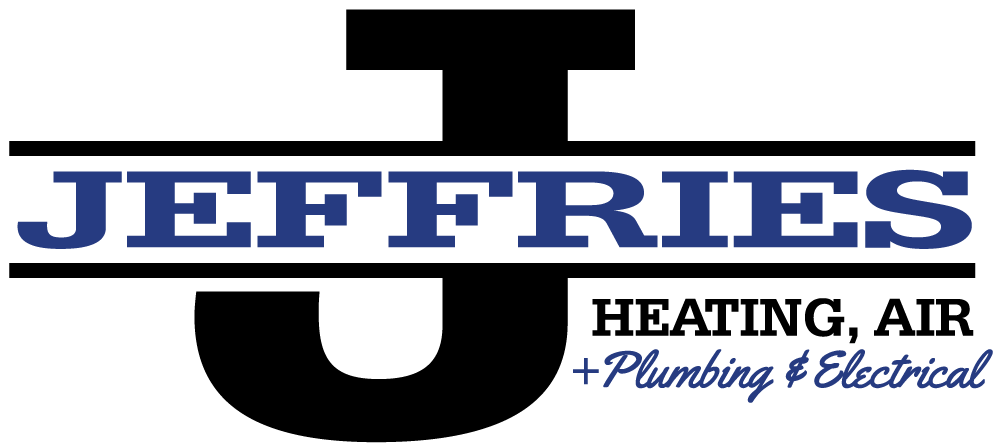Gas vs. Electric Water Heaters: The Must-Know Differences

In the U.S., both electric and fuel-burning water heaters are popular, as each represents around 50% of the market. Among fuel-burning water heaters, the most prevalent are those that burn natural gas. You can also find liquid propane water heaters, but these are primarily in more rural areas without natural gas lines. Each type of water heater has its advantages and disadvantages. Let’s explore these options to help determine which one is best for your home.
Initial Costs
Gas water heaters are inherently more complex and require several significant components that electric water heaters don’t. That’s why electric water heaters are less expensive to purchase and install. How much less depends on your area and various other factors. Still, you can expect to pay several hundred dollars more, at least, and perhaps twice as much.
Installation Complexities
Electric water heater installation is relatively straightforward. With a gas water heater, a plumber has to connect the water heater to the gas plumbing. The plumber also needs to connect the water heater to a ventilation system that exhausts combustion byproduct gases. For new installations and conversions, these tasks can require significant additional time and costs.
Lifespans
The average lifespan of a gas water heater is between 8 and 12 years. The average lifespan of an electric water heater is between 12 and 15 years. Due to maintenance requirements, it’s generally easier with electric systems to achieve and even exceed these estimates.
Total Cost
Gas water heaters are more expensive to purchase and install, and they typically have a shorter lifespan. Despite that, gas water heaters are often the better value over their lifespans. That’s because the cost of natural gas or propane is often dramatically lower than the cost of electricity.
Recovery Times
Gas water heating systems heat water faster than electric models. A typical electric water heater provides about 20 gallons per hour, while a typical gas water heater provides twice that. This is an important consideration for larger households that require bigger tanks. If you overtax the system, the gas water heater will recover notably faster.
Energy Efficiency
Most electric water heaters are about 98% efficient. These systems convert nearly all the electricity used into heat and aren’t susceptible to heat losses through the flue. Standard gas water heaters, on the other hand, are around 60% efficient. High-efficiency tank systems are up to 85% efficient, and high-efficiency tankless systems are nearly as efficient as their electric counterparts. If your goal is to reduce your carbon footprint as much as possible, electric water heating is usually the way to go.
Assessing Energy Usage
The Department of Energy measures water heater efficiency with the uniform energy factor (UEF). The higher the UEF, the more efficient the water heater. Note that UEF ratings between different types of water heaters, such as electric and gas, are not directly comparable. Still, they’re useful for determining if the system you’re choosing is efficient relative to similar models. All water heaters sold in the U.S. have a yellow EnergyGuide label. That label has all the details you need to assess estimated operating costs, including UEF.
Toxic Gases as a Byproduct
Electric water heaters operate cleanly, meaning there are no gases or residue as a byproduct of converting electricity to heat. This isn’t the case with fuel-burning furnaces. Combustion creates carbon monoxide (CO) and other potentially toxic gases that the system must vent outside the home. If there’s a malfunction, those gases can seep into the home and affect your family’s health. That’s why it’s important to have CO detectors and test them regularly.
Maintenance Requirements
Due to concerns about CO poisoning, homeowners should schedule annual maintenance for their gas water heaters. Our plumbers will clean and inspect the combustion equipment. This service will also include evaluating the ventilation system and checking for backdraft conditions. An electric water heater will also benefit from annual maintenance. All tank systems do need periodic tank flushing and anode rod replacement. All tankless systems require periodic descaling and filter replacement.
Electric and Gas Water Heater Installation in Somerset
Jeffries Heating & Air + Plumbing is a local plumbing company based in Somerset, KY. We perform all manner of gas and electric water heater installation and are open seven days a week. Our company offers a wide selection of models from the top water heater brands, including both tank and tankless systems. We often have specials available, which you can view online, and offer flexible financing options for approved credit.
To schedule an in-home installation consultation, call today or contact us online.
